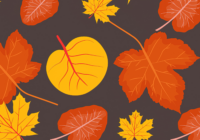Information on Health and Safety while Girl Guiding
As you may be aware, Japanese encephalitis (JE) virus has been found in Victoria. JE virus is a communicable disease and is spread to humans through mosquito bites and may cause a range of serious health issues.
The Victorian Department of Health is asking the community to take steps to prevent mosquito bites and watch for symptoms.
The Department has identified that the people most at risk of JE virus include people who live near or work with pigs, people in the northern and north-west of Victoria, and along the Murray River.
They have advised that people residing in or planning to visit the regions of Moira, Loddon, Campaspe, Wangaratta, Gannawarra, Greater Shepparton, Greater Bendigo, Northern Grampians, Mildura and Wodonga should be aware of the risk of JE virus and should take steps to significantly limit their exposure to mosquitoes.
Vaccination against JE virus is available for those at highest risk of infection.
You can view the Victorian Department of Health’s JE virus advice here.
What does this mean in the Guiding context?
While Girl Guiding we recommend that you should take preventative measures and consider the risk of JE when organising or taking part in outdoor activities, particularly for activities in JE high-risk areas.
Some additional guidance relating to our CSCF framework and infectious diseases can be found in the Health and Safety section of the Guidelines for Girl Guides and Girl Guide Volunteers.
Outdoor activities
Girl Guides spending time outdoors (eg outdoor activities) should take preventative measures to help prevent mosquito bites.
- Wear long, loose fitting clothes
- Wear treated clothing for extended periods outdoors
- Apply mosquito repellents containing DEET or picaridin on all areas of exposed skin, and apply sunscreen before insect repellent
- Reapply repellent after swimming or strenuous activities
- Limit time outdoors when mosquitos are most active
- Carry insect repellent at all times when outdoors
More information about avoiding mosquito bites can be found here.
Camping and Overnight Stays
When camping or staying overnight at a Guiding activity you are also advised to take steps to minimise opportunities for mosquitoes to enter or breed on properties.
- Make sure tents are in good working condition with flyscreens (no tears or holes), or sleep under mosquito nets
- Stay and sleep in rooms protected with flyscreens and check screens are in good working condition (no tears or holes)
- Use over-the-counter ‘knockdown’ fly sprays and plug-in repellent devices especially in dark places and behind furniture
- Where safe to do so, use mosquito coils and other devices that release insecticides in small outdoor areas to assist reducing mosquito bites
- Reduce or remove all water holding containers and stagnant water sources around campsites where mosquitoes could breed
Guiding Properties
Property managers and caretakers should minimise opportunities for mosquitoes to enter facilities or for mosquitoes to breed on properties and can take the following precautions.
- Ensure flyscreens are in good working order
- Keep a supply of insect repellent and insect spray in Guiding properties
- Reduce or remove all water holding containers and stagnant water sources around Guiding properties (including halls) where mosquitoes could breed
Any concerns or maintenance advice please contact property@guidesvic.org.au.
Look out for JE symptoms
Be aware of symptoms, especially after taking part in outdoor activities or activities in high-risk areas.
- Symptoms may include fever, headache, convulsions and sometimes coma. Other symptoms include neck or back stiffness, sensitivity to light, vomiting or confusion. Symptoms usually develop 6 to 16 days after being bitten by an infected mosquito
- Anyone experiencing these symptoms, particularly if they’ve visited high risk areas or been in contact with pigs, should seek urgent medical attention
For more information please visit the Victorian Department of Health JE virus website or contact the Department of Health enquiry line on 1300 650 172.
Updated 29 April 2022.








